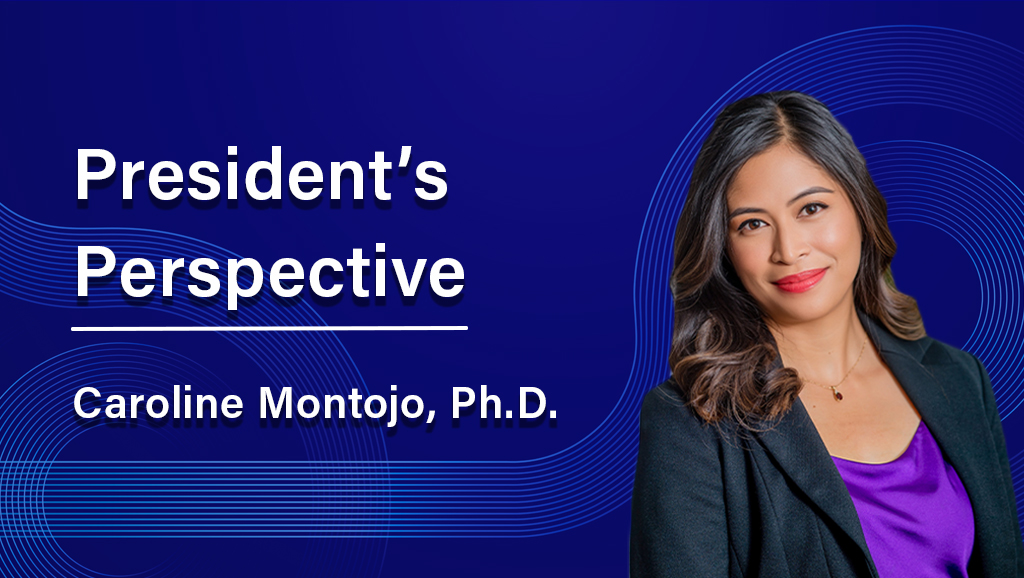President's Perspective
Cross-Disciplinary, Inclusive Science Through Philanthropic Partnership

When I consider how the Dana Foundation can make a positive impact in the world, I often think about how we can collaborate with others on a shared vision for the future. Partnerships with value-aligned organizations hold the potential to leverage expertise, knowledge, and resources to yield a collective impact—exceeding the capabilities of any singular organization. This is why I’m excited to share the following perspective piece I co-authored with Elizabeth Christopherson, president and chief executive officer of the Rita Allen Foundation. The Dana Foundation has been fortunate to collaborate with the Rita Allen Foundation since 2021, in the earliest days of our neuroscience and society mission. We funded a Civic Science Fellow, Claire Weichselbaum, who developed new approaches for public engagement on the ethical and societal impacts of neuroscience and neurotechnology. We’re once again partnering with the Rita Allen Foundation—this time alongside The Kavli Foundation—to fund additional Civic Science Fellows. These Civic Science projects will explore the ethical and societal implications accompanying neuroscience discoveries and neurotechnology development, and they will bidirectionally engage public(s) on these matters to deepen trust and inform research or policy.
Please read ahead if you’re curious to hear how we envision science foundations working together to support people who span multiple disciplines and sectors, to co-create a future where science benefits all people.
Co-Creating a Boundary-Spanning Approach to Science Philanthropy Leadership
Published January 30, 2024
By Elizabeth Good Christopherson and Caroline Montojo
As a revolutionary treatment for sickle cell disease becomes the first CRISPR-based therapy approved for humans, we continue to be energized by one of the most powerful science stories of our time. In just a few decades, curiosity-driven research into the immune system of bacteria led to investigation from research groups around the world about how these mechanisms could be harnessed—and those insights are now leading to life-saving treatments.
CRISPR has also spotlighted the complex ethical and societal issues that are inherent parts of scientific discovery and technological innovation. From the development of brain organoids to quantum science and technology, from climate models to generative artificial intelligence, transformative new discoveries and the world’s thorniest scientific challenges raise complex questions about values, goals, rights, responsibilities, tradeoffs, and approaches—from discovery to translation to application. Addressing these civic science questions can also fuel new discovery. For example, as CRISPR pioneer Jennifer Doudna and colleagues seek ways of making CRISPR technology more available and accessible, they are advancing understanding of new mechanisms for delivering precise treatments.
Our two foundations are investing along with a growing community of philanthropies that support path-breaking discovery science in efforts to integrate science as an inclusive, relevant, fully engaged part of our society. We recognize that the future of both science and civil society depend on the health of multi-directional relationships among new partners.
This work is rooted in a growing evidence base and in the voices of our communities. For example, the National Academies’ Communicating Science Effectively consensus report offers a research agenda for science communicators and researchers seeking to apply evidence-based methods to communicate effectively about science. The American Academy of Arts and Science’s Public Face of Science initiative presents priorities, goals, and actions for organizations in the science ecosystem to support effective science communication and engagement.
Like the scientists, social scientists, communicators, and community leaders we support, we are learning collaboratively and innovating in a key moment of opportunity and need. Investing in rising stars and visionary host partners as we advance the Civic Science Fellows program and network, we are generating new evidence-informed approaches and ideas with colleagues. For example, a recent program we convened together around the launch of the Civic Science Career Roadmap brought out takeaways for emerging boundary-spanning leaders—insights that apply similarly to boundary-spanning philanthropy that seeks to support science into a richly engaged future. They challenged us to:
- Expand our ideas of who leaders are and can be, supporting emerging boundary-spanning leaders to find community and ways to integrate their identities into their work (Daren Ginete, 2021–23 Science Philanthropy Alliance Civic Science Fellow)
- Learn across boundaries to drive change in individuals, institutions, and systems. Boundary spanners can see assumptions that are keeping us from greater equity and effectiveness (Joyce Yen, Director of the ADVANCE Center for Institutional Change at the University of Washington)
- Do more with the tools and platforms we have—for example, recognizing the importance of climate engagement on local, national, and international scales (Frances Colón, Senior Director of International Climate Policy at the Center for American Progress)
- Build infrastructure, guideposts, and community to support boundary-spanners—so the “wonderfully messy middle”—where emerging leaders are building bridges across sectors, fields, and communities—is a fruitful, effective place for advancing civic science culture change (Angela Bednarek, Project Director of the Evidence Project at The Pew Charitable Trusts)
We are working as philanthropic partners, along with other pioneering philanthropic leaders, to go beyond usual approaches to foster a new level of cross-disciplinary, cross-sector learning at the forefront of emerging science, diverse communities, and democratic systems. We are working to build a community committed to ensuring that all people shape and benefit from science, technology, and innovation. A community of boundary-spanning leaders and boundary-spanning philanthropists ready to invest in critical talent, research, and innovation to build this future. A community growing with momentum, co-creating stronger connections, approaches, and leaders—where science philanthropy both supports and models new frameworks for leadership, inclusion, learning, and innovation.
Elizabeth Good Christopherson is President and Chief Executive Officer of the Rita Allen Foundation. Caroline Montojo is President and Chief Executive Officer of the Dana Foundation. Both foundations are among the Civic Science Fellows funding partners.
